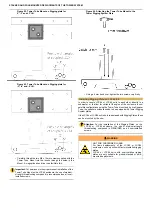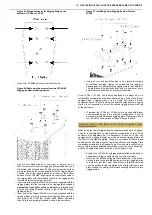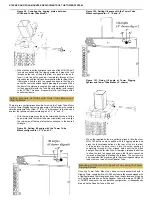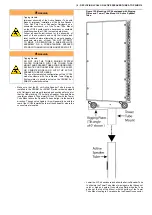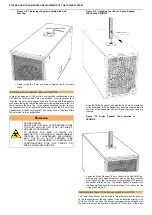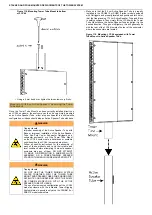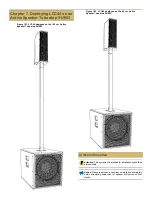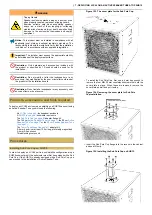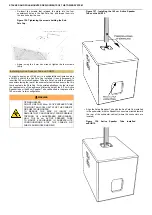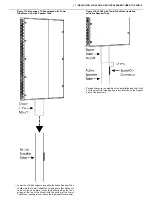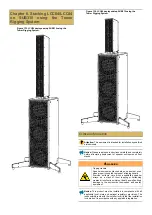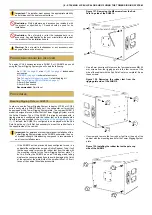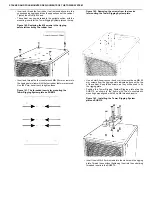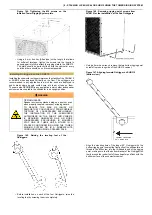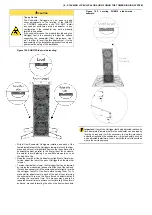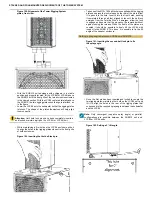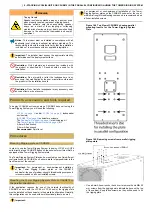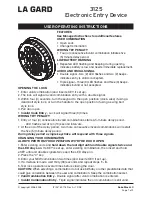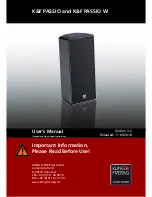
STACKED AND POLE-MOUNTED DEPLOYMENTS OF THE TOWER SYSTEM
•
Re-insert the screws that retained the plate into the four
countersunk holes in the Sub Pole Cup, and thread them into
the inserts below the cup.
Figure 126. Tightening the screws holding the Sub
Pole Cup.
•
Again, using the 4 mm hex wrench, tighten the four screws
firmly.
Installing Active Speaker Tube on SUB12
In order to deploy an LCC44 unit in a sub/satellite configuration atop
a SUB12 unit with the Sub Pole Cup installed, it is only necessary to
insert the 145 cm Active Speaker Tube into Pole Cup with the SpeakOn
connectors facing the rear of the subwoofer cabinet and assure that it is
firmly seated in the Pole Cup. For special applications, in order to meet
the requirements of the audience's listening height, the 95 cm Active
Speaker tube or the 40 cm Speaker Tube can be used in the place of the
145 cm model in this configuration.
WARNING
TIPPING HAZARD
DO NOT USE THE 145 cm ACTIVE SPEAKER TUBE
TO MOUNT AN LCC44 UNIT ATOP THE CSUB610
OR SUB310 SUBWOOFER
TO
REDUCE
THE
RISK
OF
INJURY
OR
DAMAGE THAT COULD RESULT FROM POSSIBLE
TOPPLING OF LOUDSPEAKER ENCLOSURES,
ONLY THE 95 cm ACTIVE SPEAKER TUBE
TO MOUNT ENCLOSURES IN SUB/SATELLITE
CONFIGURATIONS ATOP THE CSUB610 OR
SUB310 SUBWOOFER MODELS.
Figure 127. Installing the 145 cm Active Speaker
Tube on the SUB12.
•
Align the Active Speaker Tube with the Sub Pole Cup installed
in the subwoofer, with the SpeakOn connectors oriented toward
the rear of the subwoofer cabinet (where the connectors are
located).
Figure 128. Active Speaker Tube installed
onSUB12.

